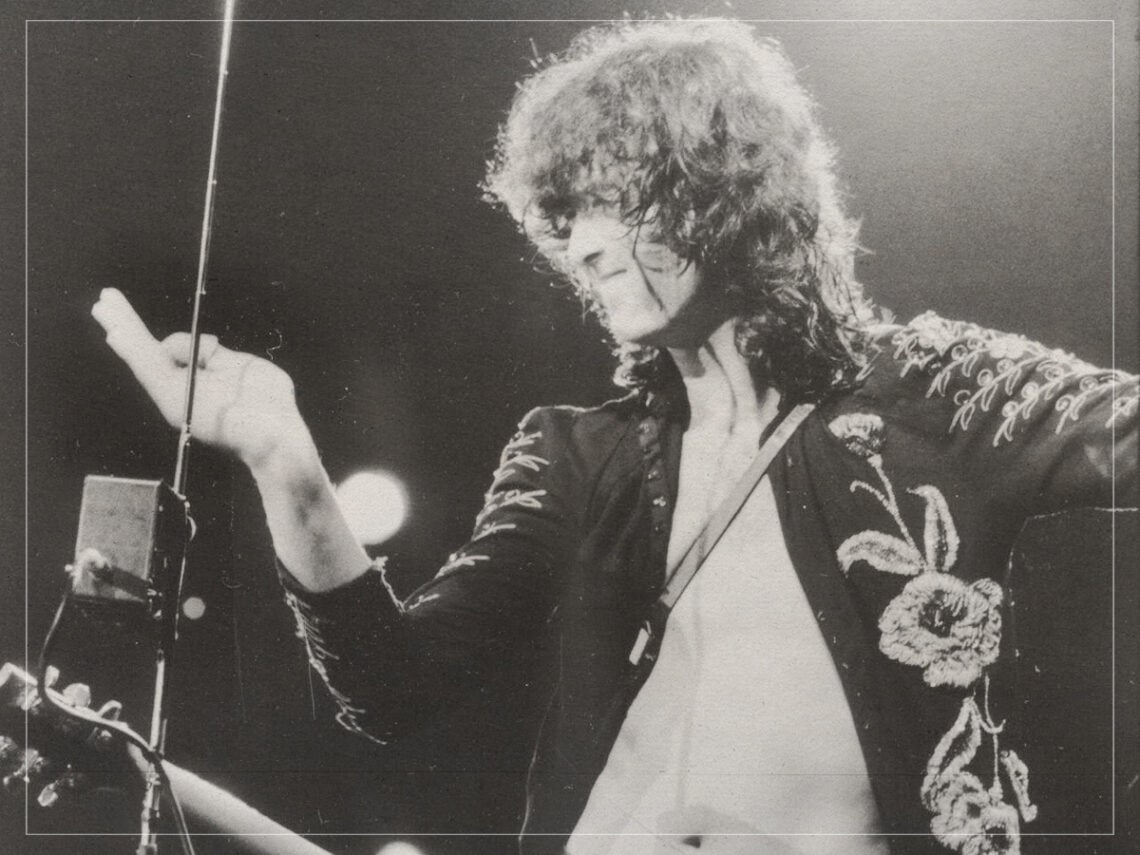
(Credits: Far Out / Open Culture)
Mon 20 October 2025 14:00, UK
Revolutionaries, if they are successful in tearing down the established regime, typically end up becoming establishment figures themselves – albeit in entirely new states and regimes. Although his impact wasn’t quite as colossal as Vladimir Lenin, the same school of thought tends to apply to Jimmy Page, the archetypal rock and roll rebel.
A young upstart walking the swinging streets of 1960s-era London, armed only with his trusty guitar, Jimmy Page lent his immeasurable talents to a wealth of different artists during his early days. Those years spent among the most prolific and in-demand session musicians in the country gave the guitarist an unparalleled education, performing on everything from the pop-centric sounds of Petula Clark, to searing rock and roll rebellion with The Who, and even the weaponised monotony of muzak. With that education, Page was ready to establish his own unique sound, changing the landscape of British rock forever in the process.
When Led Zeppelin first emerged from the shadow of their Yardbirds predecessors, the music world was still focused on ‘peace and love’ hippiedom, but that all changed pretty quickly.
Almost single-handedly establishing the blossoming world of hard rock on a widespread level, Page’s outfit wasted no time in rising to the upper echelon of British rock, crafting a litany of hugely successful albums which still command an utmost level of respect and appreciation among audiences to this day. To say that they were ahead of their time, then, would be a massive understatement.
Still, by the mid-1970s Page was no longer a rebellious young upstart, he had inarguably become part of the rock establishment and, like any figurehead, the guitarist spent a great deal of time worrying about the future of his empire. When he was gone, or Led Zeppelin faded into the ether of obscurity, who would be there to carry the torch of rock?
Looking around at their mid-1970s contemporaries, Page’s hope for the future was beginning to diminish in the face of self-aggrandising, superfluously complex guitar solos and a lyrical style far disconnected from the lives of ordinary listeners.
Eventually, though, a saviour emerged, bedecked in safety pins and with an unshakable attitude: the age of punk rock. Led Zeppelin certainly had their role in the inspiration of punk, what with their endearingly distorted solos and occasionally confrontational approach, but the rock and roll establishment of the mid-1970s didn’t tend to look upon punk with much favour. That is where Page differed from the rest.
During one interview with Trouser Press Magazine, the guitarist declared, “At this particular point, if it wasn’t for punk, which is taking it right back to the roots of shit-kicking rock and roll — back to ‘fuck you’ music, sheer adrenaline — [rock] would be in a sad state of affairs.” A bold claim, but one which certainly rings true when you examine the rock sounds of the mid-1970s.
With self-congratulatory prog rock and uninspiring soft rock guff clogging up the charts, the scene was in dire need of being taken back to its rebellious basics, and punk was the mechanism that allowed that to happen. By going back to its roots, punk allowed rock to move forward, much to the relief of those who have dedicated their entire lives to the genre, like Jimmy Page.
Related Topics
The Far Out Punk Newsletter
All the latest Punk content from the independent voice of culture.
Straight to your inbox.

